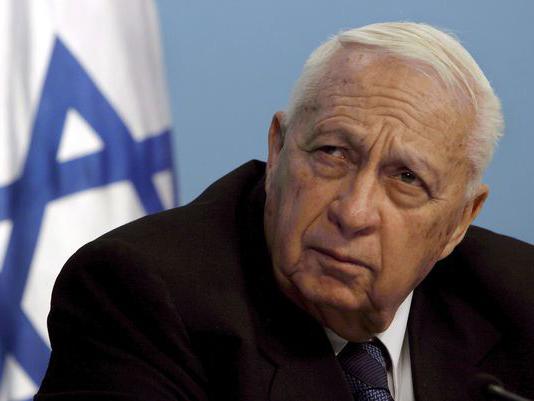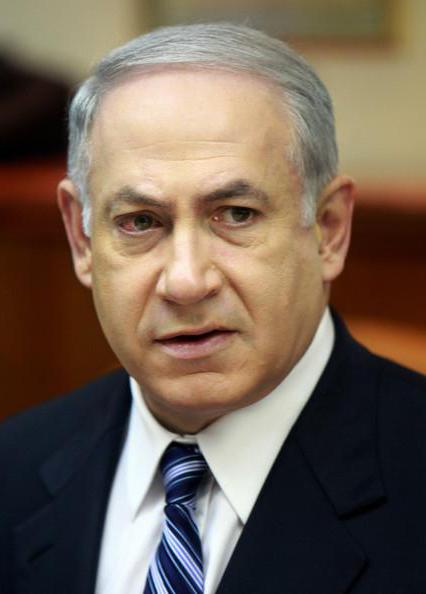Prime Ministers of Israel: list. First Prime Minister of Israel
Israel is relatively youngstate, which, however, has a rather rich political history. Despite the fact that the President is the formal head of state in this country, the Prime Minister of Israel is given the greatest functions in governing the country. He is the head of the government and, in most cases, represents the state at the international level. Let's learn more about the history of the prime ministers of this Middle Eastern country in power.
List of Prime Ministers of Israel
So, what were the prime ministers of Israel? The list of them in chronological order is presented below:
- David Ben-Gurion (2 times).
- Moshe Sharet (1 time).
- Levi Eshkol (1 time).
- Yigal Alon (1 time).
- Golda Meir (1 time).
- Yitzhak Rabin (2 times).
- Menachem Begin (1 time).
- Yitzhak Shamir (2 times).
- Shimon Peres (2 times).
- Binyamin Netanyahu (2 times).
- Ehud Barak (1 time).
- Ariel Sharon (1 time).
- Ehud Olmert (1 time).
Each of them played its historical role in the life of Israel, which we will discuss below.
Formation of the state
The first prime minister of Israel was appointed by the Israeli Knesset (parliament) in 1948. They were David Ben-Gurion. It was this man who stood at the very sources of the newest Israeli statehood.

Probably, no one did so much forthe rebirth of the Jewish state, as Ben-Gurion, since he was at the head of the world Zionist movement and the Mapai party. Therefore, it is quite natural that the post of prime minister was given to him.
Ben Gurion's premiership fell out the most difficultthe years of the existence of Israel, which not only had to form state institutions, but also reflect the Arab aggression, which is trying to completely eliminate the Israeli statehood. And, it must be said, the prime minister of Israel coped with his task brilliantly.
But, naturally, the decision of important statecases in such an aggressive environment required considerable effort and energy. This could not but affect the health of the sixty-seven-year-old David Ben-Gurion, and in 1953 he resigned. His receiver at the premiership was Moshe Sharet. But, seeing that the new leadership of the country can not cope with all internal and external problems, the following year Ben-Gurion was forced to return to politics, taking up the post of Minister of Defense.
In 1955 he was again elected Knessetprime minister, and in 1959 re-elected again. Occupied this high post until 1963. In retirement, he was forced to submit political disagreements with his supporters.
He graduated from his life path Ben-Gurion a decade after retiring from public affairs.
Levi Eshkol
After the resignation of David Ben-Gurionanother prominent representative of the Mapai-Levi Eshkol party was elected Prime Minister by the Knesset. In his position he joined in 1963, and in 1966 was re-elected for a second term. Under him, the Mapai party merged with the Akhud party. The new political force, headed by Eshkol, began to be called the Maarach. Levi Eshkol died in 1969, fulfilling his duties as prime minister.

After the death of Eshkol and. about. the head of the government became Agal Alon. These duties were imposed on him for only a few weeks, until the election of the new prime minister by the Knesset.
A woman at the head of the state
In early spring of 1969 the followingPrime Minister of Israel. A woman has never held this position before. But Golda Meir was the first and so far the only representative of the weaker sex who took over the burden of governing the Israeli state. Moreover, she is almost one of the first women in the world, along with Indira Gandhi, who took the highest state post by not inheriting, but electing. Already after them a whole galaxy of women politicians appeared who were the leaders of their countries: Margaret Thatcher, Benazir Bhutto, Angela Merkel ...

Despite belonging to the weaker sex, a newthe Prime Minister of Israel showed the required rigidity in the war against the coalition of Arab states, which allowed to defend the integrity and independence of the state. True, the relatively large losses of Israeli troops in this war led to the loss of popularity of Golda Meir, and despite the next victory of the Moarkh party, which she represented in the elections, the woman prime minister was forced to resign.
Change of political power in power
Thus, in 1974 the prime minister of Israel becameYitzhak Rabin. However, already in 1977 because of the financial scandal connected with the name of his wife, and the conflict with the Minister of Defense Shimon Peres, Rabin was forced to resign. But we will return to this outstanding political figure when we talk about his second premiership.
The resignation of Yitzhak Rabin was a landmark event forpolitical life of Israel, because the next prime minister, the Knesset chose not the representative of the party Moarh (Mapai), as always was before, but the nominee from the Likud party - Menachem Begin. In 1983, on a premier's chair, he was replaced by a single-party Yitzhak Shamir.
Then, in 1984, the Moarkh party brieflyReturn the primacy in the face of Prime Minister Shimon Peres. But he ruled the country only two years, since in 1986 the representative of Likud Yitzhak Shamir was able to regain his prime minister's seat again.
Return of Yitzhak Rabin
After a long confrontation withIsraeli civilians began to strive for peace with Palestinian rebels, so in 1992, not in the elections to the Knesset, the Likud party, which adheres to tough positions with regard to the occupied territories, won, but the propaganda organization Avod, which at one time spun from the party of Mapai.

The head of government bodies was the formerPrime Minister of Israel Yitzhak Rabin. The new premiership of Rabin from the very first days was marked by a course for holding peace negotiations with Palestinian organizations. These negotiations brilliantly resulted in the signing in Oslo of a treaty with the PLO leader Yasser Arafat in 1993. These arrangements provided for the formation of the Palestinian Authority.
But the peace-loving position of Yitzhak Rabin was foundsupport is far from all Israelis. Radical citizens thought that he betrayed the interests of Israel. One of their representatives in 1995 during the rally committed an attempt on Yitzhak Rabin. The wounds inflicted by an extremist from firearms were fatal.
The following prime ministers
The next prime minister of Israel, Shimon Peres, before thiswho was already a prime minister, ruled the country for less than a year. In 1996, for the first time in Israel, the election of the Prime Minister was conducted directly by the people, and not through the Knesset. The winner was a representative of the Likud party Binyamin Netanyahu. He pursued a tougher policy towards the Palestinians than his predecessors. However, in 1999, the Likud party suffered a complete fiasco in the elections, and Israeli Prime Minister Benjamin Netanyahu resigned.

Ehud Barak from the Labor Party was elected as the new prime minister of Israel.
New millennium
However, already in 2001 Likud returned hisposition. The head of the Cabinet of Ministers was Ariel Sharon, in which relations with the Palestinians were again aggravated. It was at this time that the Arab intifada broke out - armed clashes between Palestinians and Israelis.

In 2005, the Likud party split. Israeli Prime Minister Sharon came out with his supporters from its composition and organized the Kadima party. But in the same year the head of the government had serious health problems. He survived the stroke. In 2006, Sharon, being in a coma, was declared incompetent and suspended from power. This was the first such case of deprivation of public office in Israel. Ariel Sharon died in 2014, never leaving the coma.
Next Israeli Prime Minister from the partyKadima, Ehud Olmert, ruled the country until 2009, when he was replaced by a representative of a competing political force, Likud Binyamin Netanyahu, who had previously held the post. It is he who is the head of the cabinet of the country for the present time.

Such is the brief history of the change of prime ministers in the State of Israel.
</ p>







